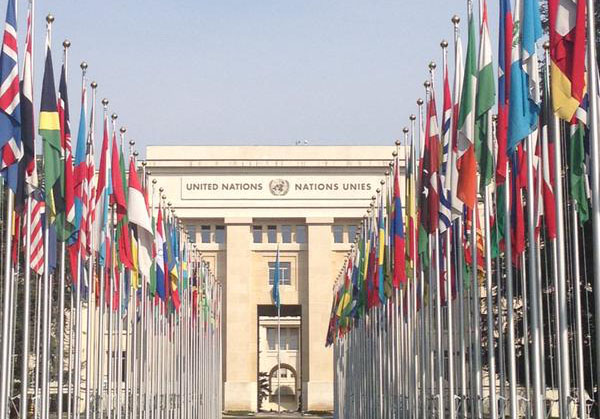
Mar 30, 2017
The ICJ and Human Rights Commission of Pakistan (HRCP) have made a submission to the Committee against Torture in advance of its examination of Pakistan’s initial report under the Convention against Torture and other Cruel, Inhuman or Degrading Treatment or Punishment.
ICJ and HRCP’s submission draws the Committee’s attention to concerns related to:
- Legal framework relevant to torture and other ill-treatment in Pakistan;
- Compatibility with the Convention, as well as other relevant international standards, of draft legislation purporting to incorporate the Convention against Torture into Pakistan’s domestic law;
- Allegations of torture and other ill-treatment of individuals facing trials before military courts in connection with terrorism-related offences;
- Prevalence of torture and other ill-treatment documented by HRCP; and
- Enforced disappearances as torture and other ill-treatment.
The Committee will examine Pakistan’s initial report during its 60th session, which will be held from 18 April to 12 May 2017.
Following the review, the Committee will adopt Concluding Observations setting out recommendations to the Pakistani Government.
Pakistan-CAT ICJ HRCP-Advocacy-legal submissions-2017-ENG (full text in PDF)
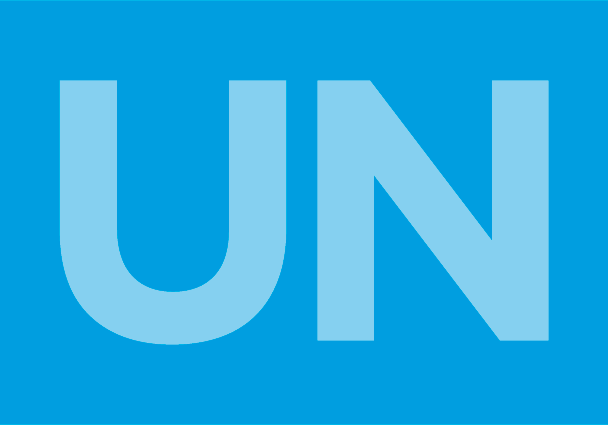
Mar 30, 2017 | Advocacy, Non-legal submissions
Today, the ICJ made a submission to the Universal Periodic Review of Pakistan.
The submission brings to the attention of the members of the Human Rights Council’s Working Group on the UPR issues concerning:
- Trials of civilians by military tribunals;
- Enforced disappearances;
- Torture and other ill-treatment;
- Blasphemy laws; and
- International human rights instruments.
With respect to each of the above-mentioned concerns, the ICJ calls upon the Working Group on the UPR and the Human Rights Council to make a number of recommendations to the Pakistani authorities.
Pakistan-ICJ UPR-Advocacy-non-legal submissions-2017-ENG (full text in PDF)
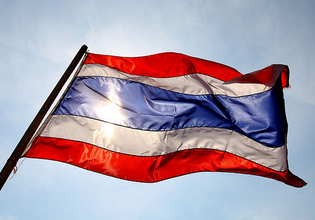
Mar 12, 2017 | Events, News
A side event to the UN Human Rights Council, Tuesday 14 March, 16.00 – 17.00, Palais des Nations room XXI.
TORTURE AND ENFORCED DISAPPEARANCE IN THAILAND
THE STATE RESPONSE
Tuesday 14 March/16.00-17.00
room XXI
Panelists:
Angkhana Neelapaijit, National Human Rights Commissioner and family victim of enforced disappearance
Yuval Ginbar, Amnesty International legal advisor
Moderated by Matt Pollard, ICJ Senior Legal advisor
The event follows the Human Rights Committee’s examination of Thailand’s second periodic report on its implementation of the International Covenant on Civil and Political Rights on 13 and 14 March 2017.
The event will focus on the measures Thailand has taken to implement its international human rights obligations with respect to the prohibition of enforced disappearance, torture and ill-treatment – with a particular focus on the draft Prevention and Suppression of Torture and Enforced Disappearance Act (Draft Law).
Background
Eighty-two cases of enforced or involuntary disappearance in Thailand were reported to the Working Group on Enforced or Involuntary Disappearances between 1980 and 2016. Civil society has also issued several reports containing allegations of torture by security forces, particularly in the restive deep South. These allegations were made against a culture of impunity which pervades Thailand.
In October 2016, after 11 years and three months of investigation, the Department of Special Investigation (‘DSI’) declared the emblematic enforced disappearance case of Somchai Neelapaijit closed, saying no culprits had been found. In January 2017, the DSI further announced it would not investigate the apparent enforced disappearance of Pholachi “Billy” Rakchongcharoen, a Karen minority human rights defender. These cases underscore the difficulties victims face in obtaining justice under the current legal framework in Thailand.
For several years, Thailand has pledged its commitment to ratifying the International Convention on Enforced Disappearance (ICCPED) and passing domestic legislation criminalizing torture and enforced disappearance. In May 2016, the Cabinet approved a Draft Law, which was subsequently transmitted to Thailand’s legislature, the National Legislative Assembly (NLA). However, last month, the NLA announced it would send the Draft Law back to the Cabinet for further consultation, effectively ending the possibility of it being enacted in the foreseeable future.
For further information on recent developments concerning this piece of legislation, please see: https://www.icj.org/thailand-prioritize-the-amendment-and-passage-of-legislation-on-torture-and-enforced-disappearances/.
A flyer for the event may be downloaded here.
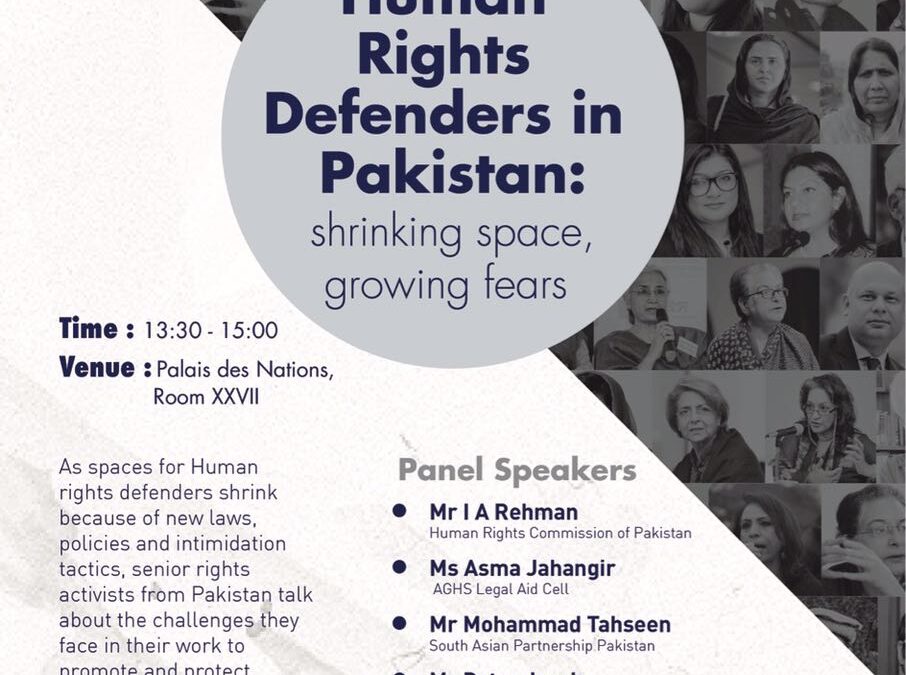
Mar 12, 2017 | Events, News
A side event at the UN Human Rights Council, 13 March 2017.
13 March, 13:30-15:00
Palais des Nations, Room XXVII
As spaces for human rights defenders shrink because of new laws, policies and intimidation tactics, senior rights activists from Pakistan talk about the challenges they face in their work to promote and protect human rights in the country.
Panelists:
Mr I. A. Rehman: Human Rights Commission of Pakistan
Ms Asma Jahangir: AGHS Legal Aid Cell
Mr Mohammad Tahseen: South Asia Partnership Pakistan
Mr Peter Jacob: Center for Social Justice
Moderator:
Ms Reema Omer: International Commission of Jurists
Flyer available here.
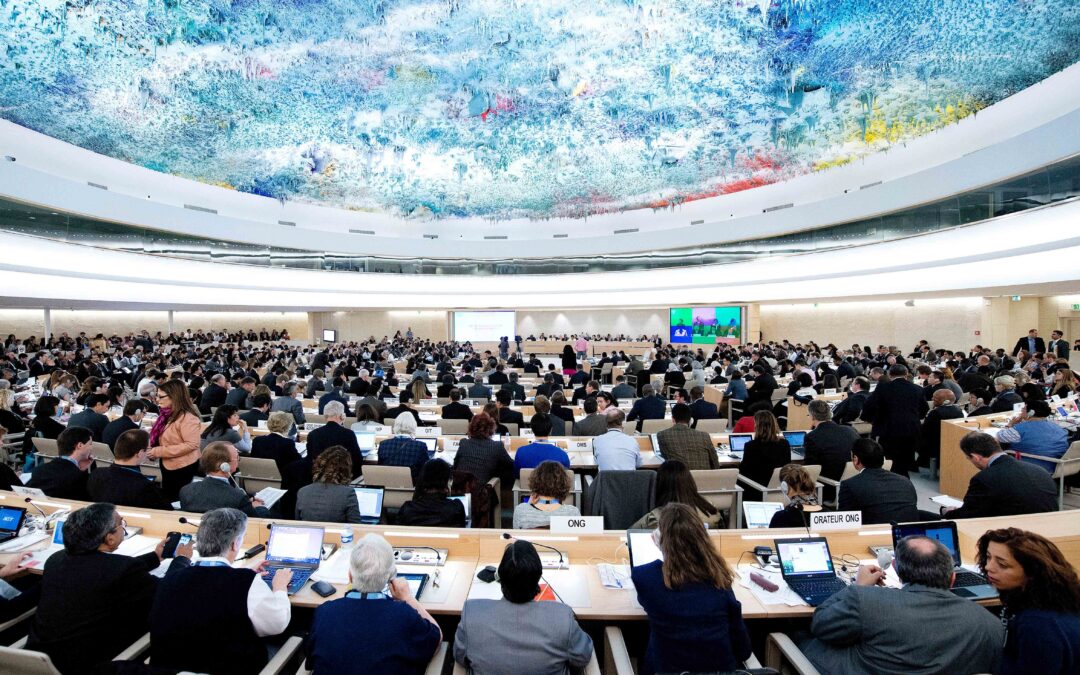
Mar 12, 2017 | Advocacy, Non-legal submissions
The ICJ has made an oral statement to the UN Human Rights Council on a range of measures needed to ensure truth, justice, reparations and non-repetition of past violations, in Nepal.
The statement read as follows:
TRUTH, JUSTICE, REPARATION, AND GUARANTEES OF NON-RECURRENCE IN NEPAL
10 March 2017
Mr. President
Without effective measures to ensure truth, justice, reparation and guarantees of non-recurrence, countries in situations of transition or post-conflict fail victims and put future reconciliation, peace and stability at risk. One example is Nepal.
Nepal’s Truth and Reconciliation Commission and Commission of Investigation on Disappeared Persons have not been effective. Changes are needed to bring their legal frameworks and operations in line with international standards and Supreme Court jurisprudence. These bodies require adequate resources. Trust-building measures including consultation processes must address the perspectives and needs of victims and for victims to feel ownership over the transitional justice process in Nepal.
Nepal must ensure prompt, independent and impartial investigation and prosecutions for serious human rights violations, including those committed during the armed conflict.
It must ensure justice and reparation for victims, including as provided for in the UN Basic Principles and Guidelines on the Right to a Remedy and Reparation.
It must criminalize serious crimes under international law in a manner that is consistent with international law, to help prevent such violations ever occurring again.
Nepal should also issue a standing invitation to all thematic special procedures of the Council.
Thank you, Mr. President.









